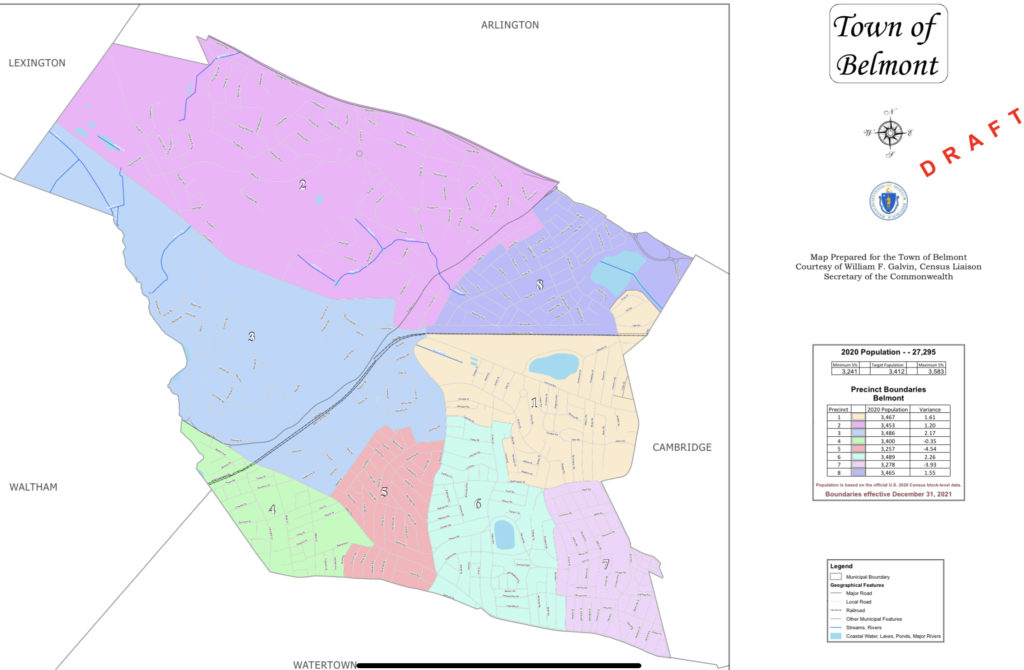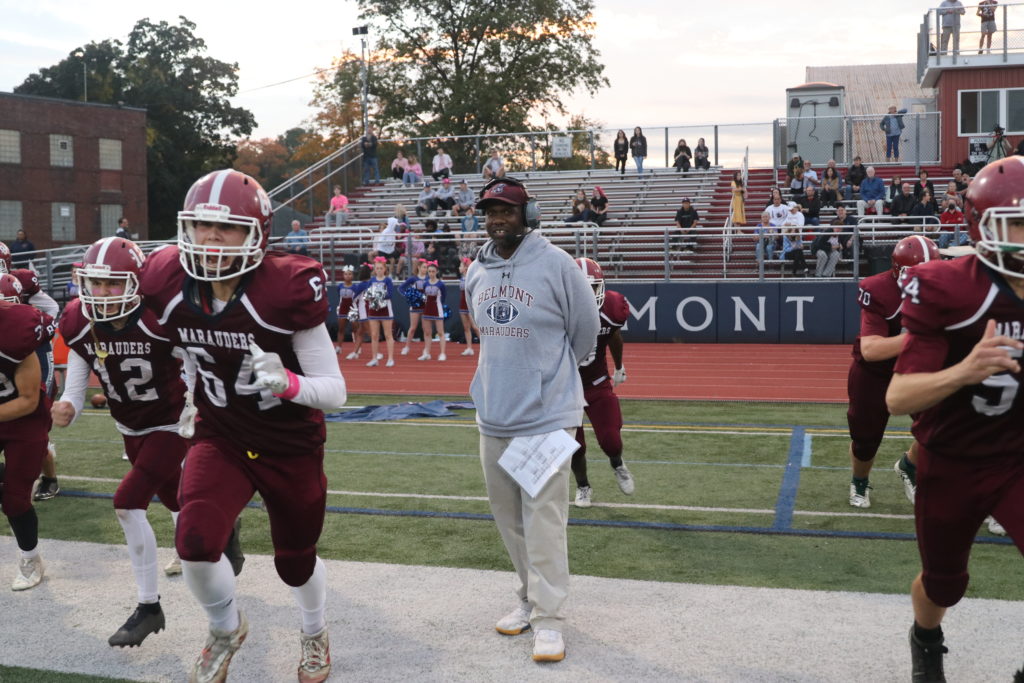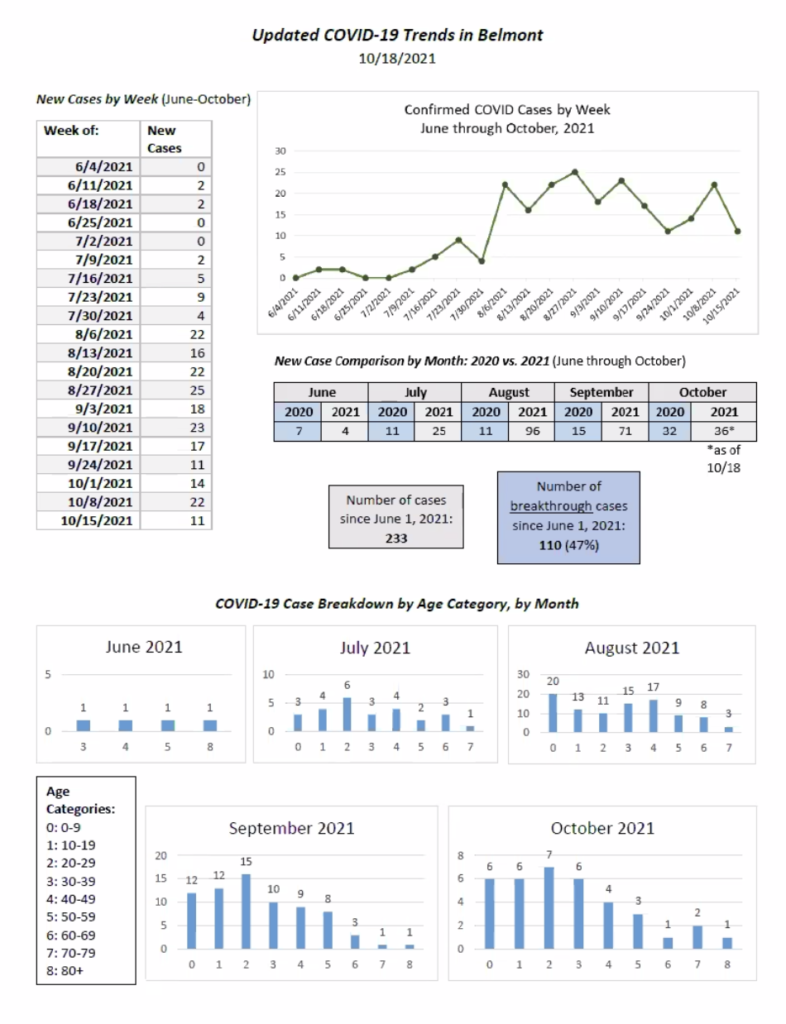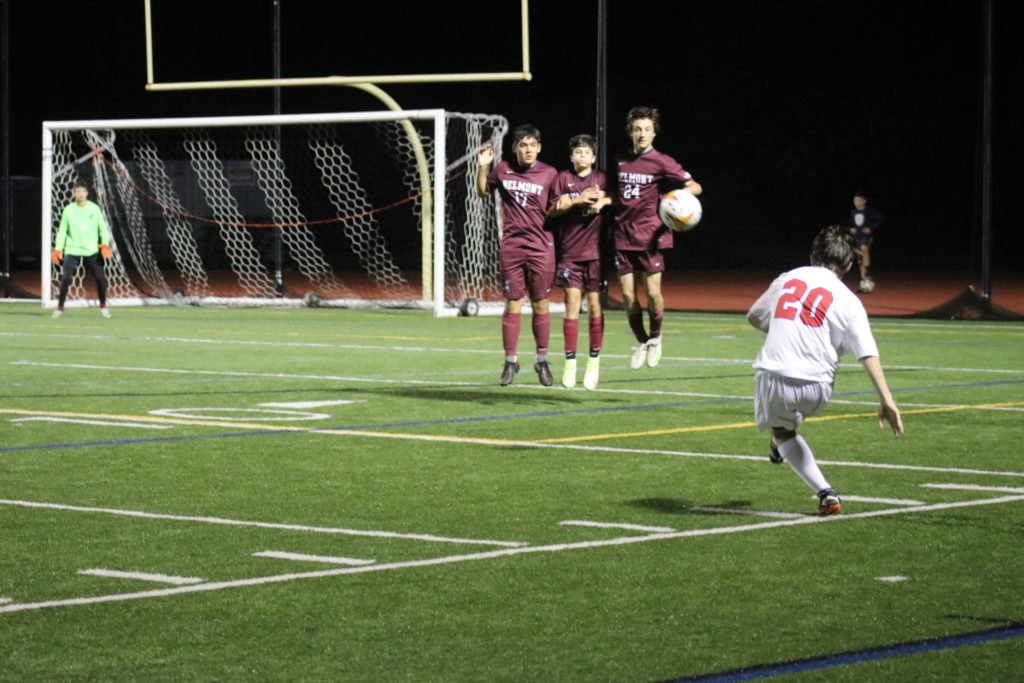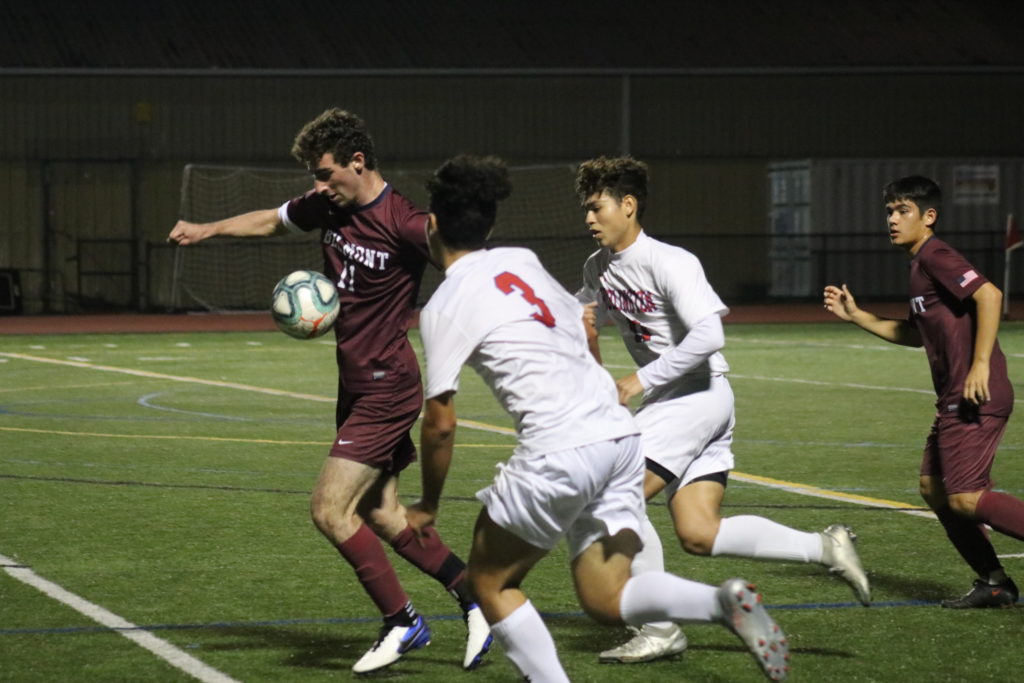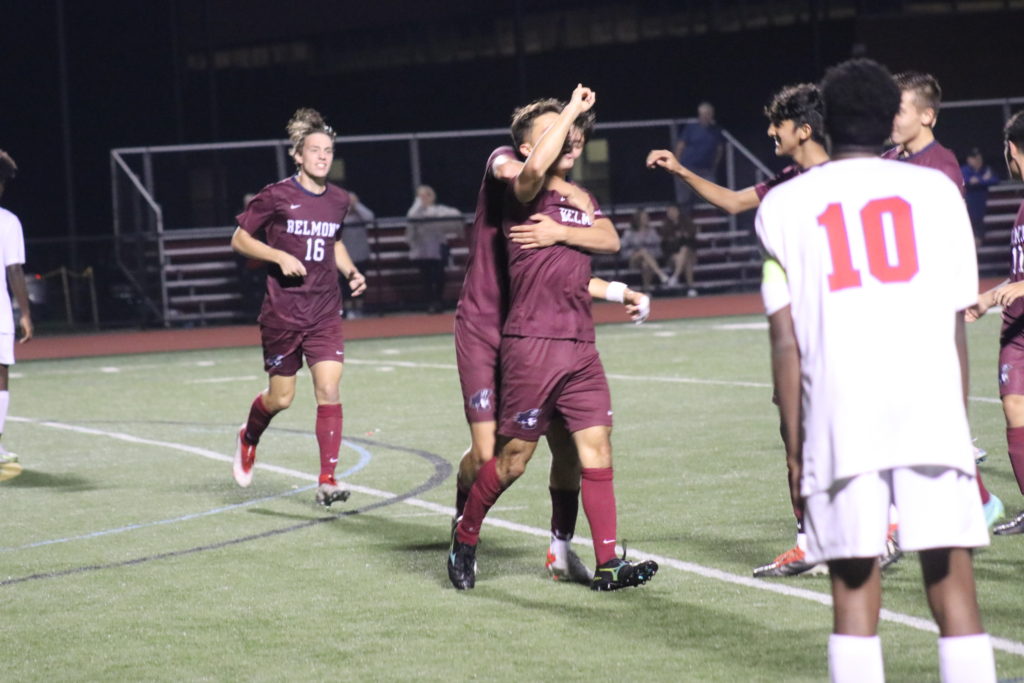Photo: Town Clerk Ellen Cushman presenting the town’s reprecincting draft before the Select Board
The Belmont Select Board approved a new town precinct map at a special meeting Monday, Oct. 25 resulting in half of the town’s residents with new boundaries for the next town election.
“The point of reprecincting is to balance our population amongst our eight precincts and we will balance the representation of our Town Meeting members,” said Town Clerk Ellen Cushman who heads the town’s Reprecincting Team.
The map and the board’s vote will now go to the state for final acceptance, said Cushman. The new map will go into effect on Dec. 31 and will be used in the 2022 annual Town Election in April.
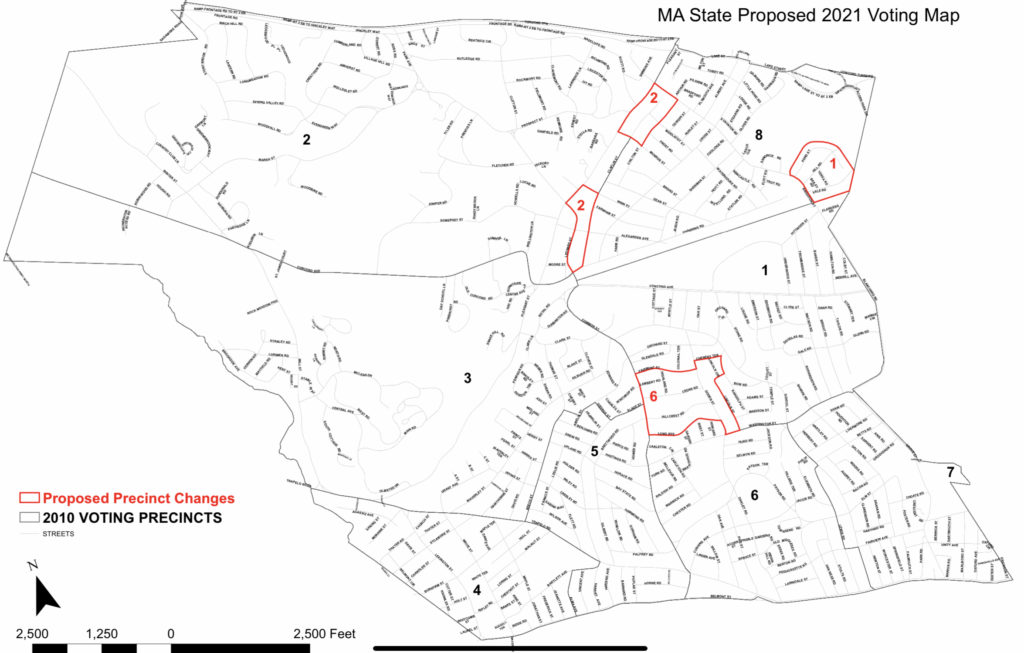
The changes to four of the town’s eight precinct is in response to 10 percent increase in residents since the 2020 census, now at 27,295. Three precincts – precincts 8, 1 and 6 – will see significant changes while precinct 2 will see a minor addition of a few census blocks. After the rearrangement, each precinct will represent approximately 3,400 residents.
More information on reprecincting can be found here.
The changes will result in all Town Meeting Member positions in the altered precincts to be vacant with 36 open seats for candidates to contend over this coming April. The terms for each of the 36 successful candidates will be determined by a “first across the line” distribution: The first 12 will serve three-year terms, the second 12 serving two years on Town Meeting and the final 12 will have a one-year term.
After consulting with Town Counsel, Cushman said current Members will be considered a candidate for re-election, which will free them from collecting signatures on nomination papers.
The board’s action will not effect the student school districts or zoning areas, said Cushman.
“Wouldn’t it be nice that any redistricting throughout the country was done in such a wonderful, thoughtful and objective way which is not the case,” said Select Board member Mark Paolillo.
